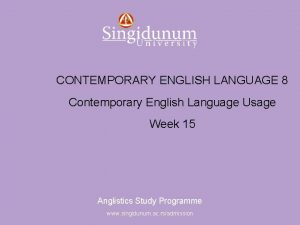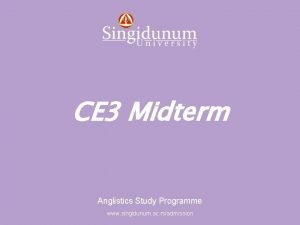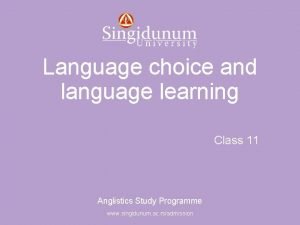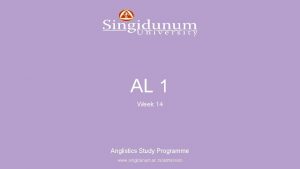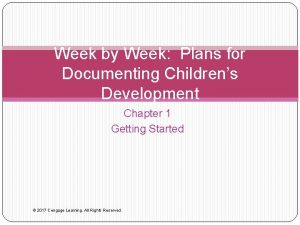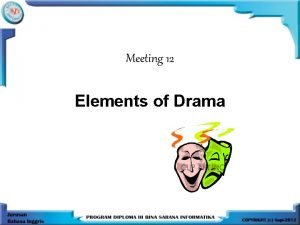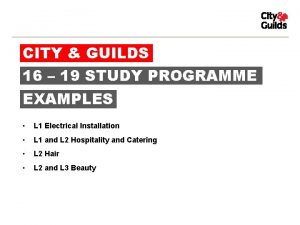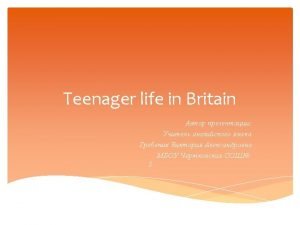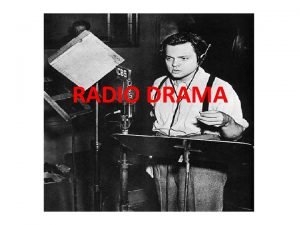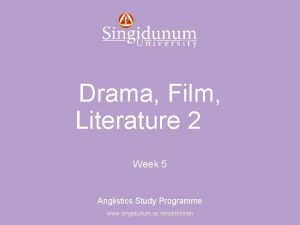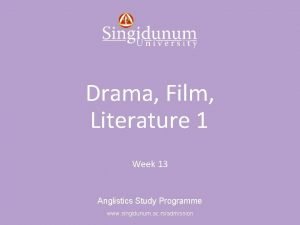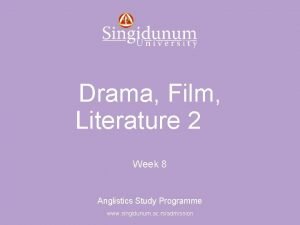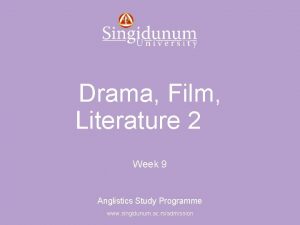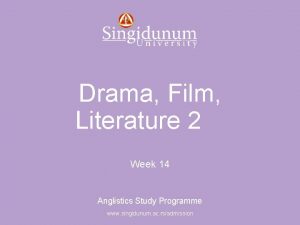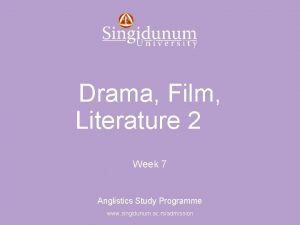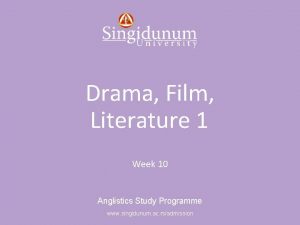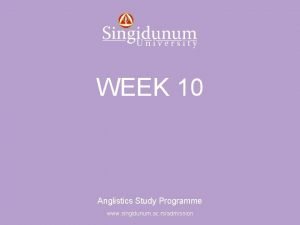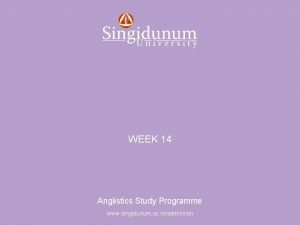Anglistics Study Programme Drama Film Literature 1 Week










- Slides: 10

Anglistics Study Programme Drama, Film, Literature 1 Week 2 Anglistics Study Programme www. singidunum. ac. rs/admission

Anglistics Study Programme Literary genres • genre is a French term derived from the Latin genus, generis, meaning “type”, “sort”, “kind”. • it designates the literary form, i. e. type, into which works are classified according to what they have in common, either in their formal structures or in their treatment of subject matter • the three-part division of lyric, epic and drama, while useful, does not provide a place for all of the known literary genres (essays, biography, autobiography, satire, etc. )

Anglistics Study Programme Literary genres • lyric – typically, the subject matter is expressive, whether of personal emotions or of public emotions • drama – presents actions and words of characters on stage; standard subdivision into tragedy and comedy comes from the practice in Greek drama • epic – in the past referred to the “poetic epic”; today’s broader classification of epic may include many kinds of narratives, such as: the novel, the folktale, the fable, the fairy tale, even the short story and the novella

Anglistics Study Programme Epic • the origin of the word is ancient Greek word epos meaning “word, story, poem” • the oldest epic recognized is Epic of Gilgamesh (c. 2500 – 1300 BC), an ancient Sumerian epic • the longest epic written is the ancient Indian Mahabharata, consisting of over 200, 000 verse lines and long prose passages

Anglistics Study Programme Epic hero • a character with impressive qualities who completes aweinspiring deeds • he faces adversaries that try to defeat him, and returns home significantly transformed by his journey • illustrates traits, performs deeds, and exemplifies certain morals that are valued by the society the epic originates from • he is loyal to his master and to his family, in that order • many epic heroes are recurring characters in the legends of their native countries • are epic heroes always good/positive? • epic heroes in modern literature?

Anglistics Study Programme Beowulf • the oldest epic in the English Language (Old English) • it survived in the single medieval manuscript and is now kept in the British Library • nobody knows for certain when the poem was composed, but it is believed that it was written down by the end of the ninth century

Anglistics Study Programme Beowulf – the language • this poem was the product of an advanced pagan civilisation • Old English which was the original language of the poem was rich in consonants • those consonants were clustered together, thus making it really hard to pronounce the words • “the mouth seemed to perform a swift act of violence” • the language and imagery used is sophisticated – much of the strength and violence of the poem derive from the nature of Old English itself

Anglistics Study Programme • here is a line from Beowulf: Steap stanlitho – stige nearwe (steep stone-slopes, paths narrow) • technique the Old English poet used emphasizes the violence of the language, i. e. the violence in the poem • the line is divided into two halves (two heavy stresses in each half) • head-rhyme – making words begin with the same sound (compare with alliteration) • although it hasn’t been predominantly used since Norman Conquest, head-rhyme has always had some influence on English writers

Anglistics Study Programme • the use of head-rhyme in Old English verse (though it produced an effect of violence) also caused that often a poet has to call some quite common thing by an uncommon name (thus the sea becomes the swan’s way or the whale’s road or the sail-path), usually a name he himself invents for his immediate purpose • the use of head-rhyme seems natural to English verse and it even plays a large part in everyday English speech (fit as fiddle, a pig in a poke) • the modern revival of the rhyme was perhaps started by Ezra Pound, an American writer, who translated an Old English poem (The Seafarer) into Modern English but retained the technique of the original

Anglistics Study Programme Beowulf • metrically, stylistically, and thematically, Beowulf belongs to a heroic tradition grounded in Germanic religion and mythology • poem’s grim music – snapping of fangs, crunching of bones, etc. • poem’s colour – grey of the northern winter, shot by the red of blood • Beowulf himself seems more altruistic than other epic heroes – he fights against evil monsters
